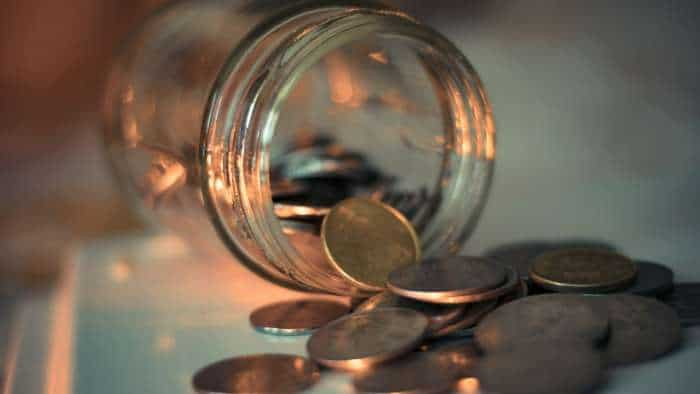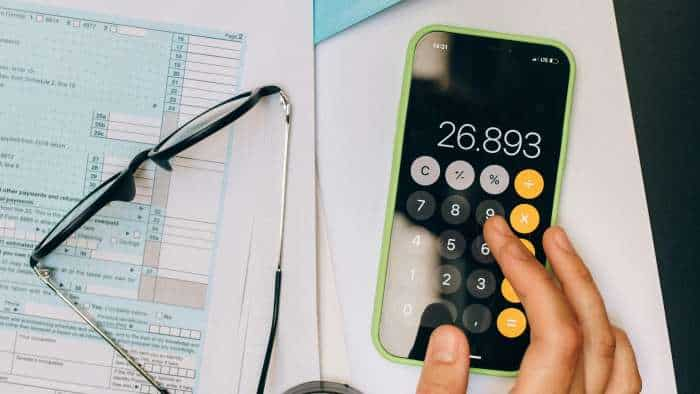What is RBI tokenisation rule? Benefits? Charges? Is it safe? Mandatory for cardholders? FAQs answered here
Here is this article, FAQs on Tokenisation – Card Transactions have been answered as per the information given on RBI website - rbi.org.in

In a major development, tokenisation deadline by RBI has been extended by 6 months. RBI in a statement said, "The timeline for storing of CoF data is extended by six months, i.e., till June 30, 2022."
RBI had given a deadline of December 31 for tokenisation. This meant that from January 1, merchants will not be able to store card information of users and will have to replace each card number with a randomised token number.
India has an estimated 98.5 crore cards, which are used for about 1.5 crore daily transactions worth Rs 4,000 crore, as per industry body CII. The value of the Indian digital payments industry in 2020-21, as per the RBI's annual report, was Rs 14,14,85,173 crore.
Amid the approaching deadline, there are number of questions from merchants' and consumers' side like what is tokenisation? What are it benefits? Are there any charges for it? Is it safe? Is is mandatory for cardholders/consumers? Here is this article, FAQs on Tokenisation – Card Transactions have been answered as per the information given on RBI website - rbi.org.in
1. What is tokenisation?
Ans. Tokenisation refers to replacement of actual card details with an alternate code called the “token”, which shall be unique for a combination of card, token requestor (i.e. the entity which accepts request from the customer for tokenisation of a card and passes it on to the card network to issue a corresponding token) and device (referred hereafter as “identified device”).
2. What is de-tokenisation?
Ans. Conversion of the token back to actual card details is known as de-tokenisation.
3. What is the benefit of tokenisation?
Ans. A tokenised card transaction is considered safer as the actual card details are not shared with the merchant during transaction processing.
4. How can the tokenisation be carried?
Ans. The card holder can get the card tokenised by initiating a request on the app provided by the token requestor. The token requestor will forward the request to the card network which, with the consent of the card issuer, will issue a token corresponding to the combination of the card, the token requestor, and the device.
5. What are the charges that the customer need to pay for availing this service?
Ans. The customer need not pay any charges for availing this service.
6. What are the use cases (instances / scenarios) for which tokenisation has been allowed?
Ans. Tokenisation has been allowed through mobile phones and / or tablets for all use cases / channels (e.g., contactless card transactions, payments through QR codes, apps etc.)
7. Can tokenisation be enabled through a smart watch or such other devices?
Ans. The feature of tokenisation is restricted to mobile phones and / or tablets only.
8. Who can perform tokenisation and de-tokenisation?
Ans. Tokenisation and de-tokenisation can be performed only by the authorised card network. The list of card networks authorised by RBI to operate in India is available on RBI website at the link https://www.rbi.org.in/Scripts/PublicationsView.aspx?id=12043.
9. Who are the parties / stakeholders in a tokenisation transaction?
Ans. Normally, in a tokenised card transaction, parties / stakeholders involved are merchant, the merchant’s acquirer, card payment network, token requestor, issuer and customer. However, an entity, other than those indicated, may also participate in the transaction.
10. Are the customer card details safe after tokenisation?
Ans. Actual card data, token and other relevant details are stored in a secure mode by the authorised card networks. Token requestor cannot store Primary Account Number (PAN), i.e., card number, or any other card detail. Card networks are also mandated to get the token requestor certified for safety and security that conform to international best practices / globally accepted standards.
11. Is tokenisation of card mandatory for a customer?
Ans. No, a customer can choose whether or not to let his / her card tokenised.
12. Does the customers have the option to select tokenisation for a particular use case?
Ans. Customers have the option to register / de-register their card for a particular use case, i.e., contactless, QR code based, in-app payments, etc.
13. How does the process of registration for a tokenisation request work?
Ans. The registration for a tokenisation request is done only with explicit customer consent through Additional Factor of Authentication (AFA), and not by way of a forced / default / automatic selection of check box, radio button, etc. Customer will also be given choice of selecting the use case and setting-up of limits.
14. Can the customer set / select own limits for tokenised card transactions?
Ans. Customers have the option to set and modify per transaction and daily transaction limits for tokenised card transactions.
15. Is there any limit on the number of cards that a customer can request for tokenisation?
Ans. A customer can request for tokenisation of any number of cards. For performing a transaction, the customer shall be free to use any of the cards registered with the token requestor app.
16. Can the customer select which card to be used in case he / she has more than one card tokenised?
Ans. For performing any transaction, the customer shall be free to use any of the cards registered with the token requestor app.
17. Is there any limit on the number of devices on which a card can be tokenised?
Ans. A customer can request for tokenisation of his / her card on any number of devices. However, as of now, this facility shall be offered through mobile phones / tablets only.
18. Whom shall the customer contact in case of any issues with his / her tokenised card? Where and how can he / she report loss of device?
Ans. All complaints should be made to the card issuers. Card issuers shall ensure easy access to customers for reporting loss of “identified device” or any other such event which may expose tokens to unauthorised usage.
19. Can a card issuer refuse tokenisation of a particular card?
Ans. Based on risk perception, etc., card issuers may decide whether to allow cards issued by them to be registered by a token requestor.
20. Where can more information on RBI instructions on tokenisation be found?
Ans. The circular issued by RBI on tokenisation is available on the RBI website at the path https://www.rbi.org.in/scripts/FS_Notification.aspx?Id=11449&fn=9&Mode=0.
(These FAQs are issued by the Reserve Bank of India for information and general guidance purposes only. The Bank will not be held responsible for actions taken and / or decisions made on the basis of the same. For clarifications or interpretations, if any, one may be guided by the relevant circulars and notifications issued from time to time by the Bank.)
Get Latest Business News, Stock Market Updates and Videos; Check your tax outgo through Income Tax Calculator and save money through our Personal Finance coverage. Check Business Breaking News Live on Zee Business Twitter and Facebook. Subscribe on YouTube.
RECOMMENDED STORIES

Rs 5,000 SIP for 40 years vs Rs 50,000 SIP for 20 years: Which can create higher corpus? See calculations to know it

PPF For Regular Income: How you can get Rs 78,000 a month tax-free income through Public Provident Fund investment?
08:42 PM IST










 Tokenisation in India: What it is and why RBI pushing for faster adoption? Explained
Tokenisation in India: What it is and why RBI pushing for faster adoption? Explained  RBI tokenisation deadline extended by 6 months till June 30, 2022
RBI tokenisation deadline extended by 6 months till June 30, 2022 RBI tokenisation rule after Dec 31: What it is? Why CII said online merchants can lose up to 40% revenues
RBI tokenisation rule after Dec 31: What it is? Why CII said online merchants can lose up to 40% revenues